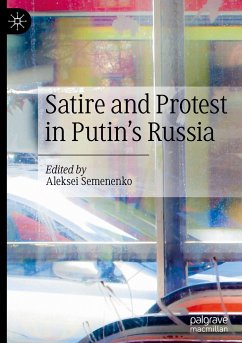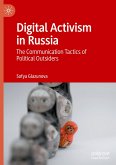This book studies satirical protest in today's Russia, addressing the complex questions of the limits of allowed humor, the oppressive mechanisms deployed by the State and pro-State agents as well as counterstrategies of cultural resistance. What forms of satirical protest are there? Is there State-sanctioned satire? Can satire be associated with propaganda? How is satire related to myth? Is satirical protest at all effective?-these are some of the questions the authors tackle in this book. The first part presents an overview of the evolution of satire on stage, on the Internet and on television on the background of the changing post-Soviet media landscape in the Putin era. Part Two consists of five studies of satirical protest in music, poetry and public protests.
"In addition to its considerable contribution to scholarship on contemporary Russian culture, Semenenko's comparative historical discussion makes it a valuable addition to studies of the place of humour and satire in Soviet culture ... . This volume also fills a gap in the scholarship on Putin-era culture and cultural politics, which has tended to focus on particular media (literature, film, television, art, music) or genres, rather than on more amorphous, cross-generic and multi-media modes of expression such as satire." (Seth Graham, Slavonic and East European Review SEER, Vol. 101 (2), January, 2023)








